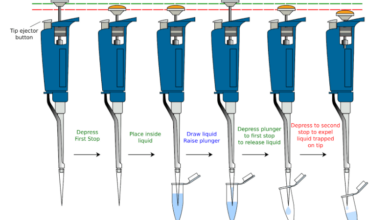Rajkotupdates.news : government may consider levying tds tcs on cryptocurrency trading

Cryptocurrency rajkotupdates.news : government may consider levying tds tcs on cryptocurrency trading has been one of the hottest topics in the financial world for quite some time now. However, with its increasing popularity comes stricter regulations from governments around the world. Recently, there has been talk of implementing Tax Deducted at Source (TDS) and Tax Collected at Source (TCSA) on cryptocurrency transactions in India. This could have a significant impact on how people buy and sell digital assets, making it essential to understand what these terms mean and how they will affect your investments. In this blog post, we’ll take a closer look at TDS and TCSA and their potential implications for cryptocurrency traders in India.
Background
Cryptocurrency has been a subject of controversy in India since its inception. The Indian government and the Reserve Bank of India (RBI) have issued several warnings regarding cryptocurrency trading, highlighting the risks involved. In 2018, the RBI even imposed a blanket ban on financial institutions from dealing with cryptocurrency transactions.
However, this decision was overturned by the Supreme Court of India in March 2020, which allowed banks to deal with cryptocurrency exchanges again. Since then, there has been renewed interest in digital assets among investors and traders.
Despite this newfound freedom for crypto traders and exchanges, the Indian government is still wary about regulating cryptocurrencies effectively. There are concerns that digital currencies could be used for illegal activities such as money laundering or funding terrorism.
To address these issues, policymakers are considering imposing TDS and TCSA on cryptocurrency transactions to track investments more closely. This move could help prevent fraud while providing greater transparency into how people buy and sell cryptocurrencies online.
What Is TDS and How Will it Affect Cryptocurrency Transactions?
TDS stands for Tax Deducted at Source, and it is a tax collection mechanism used by the government to collect taxes on income, dividends, or other payments. In simple terms, TDS means that a percentage of the payment made will be deducted as tax before transferring the rest. The government has proposed to impose TDS on cryptocurrency transactions.
This move comes after several reports of illegal activities such as money laundering and terror financing using cryptocurrencies. By imposing TDS on cryptocurrency transactions, the government aims to curb such activities while also generating revenue through taxes.
However, this move is likely to affect small-scale investors who trade in cryptocurrencies regularly. It may discourage them from investing in digital assets due to increased taxation and compliance requirements.
Moreover, there is still some ambiguity regarding how exactly TDS will be implemented in cryptocurrency transactions. Once clear guidelines are issued by the authorities regarding this matter, only then can investors understand its full impact on their investments in cryptocurrencies.
What is TCSA and How Will It Affect Cryptocurrency Transactions?
TCSA or Tax Collected at Source is another kind of tax that the government may impose on cryptocurrency transactions. Similar to TDS, TCSA requires the collector or seller to collect a certain percentage of tax from the buyer and deposit it to the government. However, instead of being deducted from income or payment received, TCSA is collected by sellers while making sales.
In this case, if someone purchases cryptocurrency worth Rs 10 lakh and TCSA rate is fixed at 1%, then he has to pay an additional Rs 10,000 as tax while completing his transaction. The aim behind introducing TCSA in cryptocurrencies is to monitor high-value transactions and ensure transparency in dealings so that people do not use cryptocurrencies for illegal activities such as money laundering.
Cryptocurrency exchanges will be tasked with collecting the taxes under both TDS and TCSA provisions which could increase compliance costs significantly. While it remains uncertain whether these taxes will be implemented soon and how they would impact crypto trading volumes in India, it’s advisable for investors/traders/dealers involved with virtual currencies to stay updated with any new regulations concerning their investments.
Conclusion
As the cryptocurrency market continues to grow, governments around the world are looking for ways to regulate and tax it. India is no exception, with recent proposals suggesting that TDS/TCS could be imposed on cryptocurrency transactions.
While this move may make some investors nervous, it’s important to remember that regulation can also bring stability and legitimacy to a market. By ensuring that taxes are paid on cryptocurrency transactions, the government can help prevent fraud and protect consumers.
Of course, there will still be those who try to evade taxes or engage in illegal activities using cryptocurrencies. But overall, increased regulation is likely to benefit both investors and the wider economy over time.
As always when investing in any asset class — including cryptocurrencies — it’s essential to stay up-to-date with regulatory developments and seek rajkotupdates.news : government may consider levying tds tcs on cryptocurrency trading professional advice where necessary. With careful research and responsible investment strategies, however, savvy investors can continue exploring new opportunities within this dynamic space.




